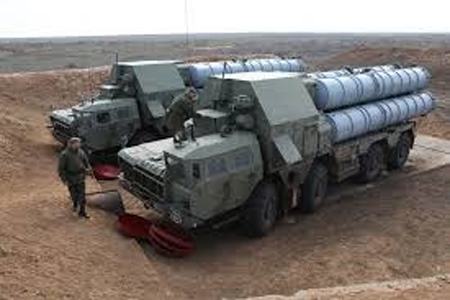
‘Most aggressive since Cold War’: Russia may beef up border if US arms stationed in E. Europe
Afrasianet - Russia has no binding obligations limiting its armed forces in its western region, which means if the US deploys heavy weapons in Eastern Europe and the Baltic States, there will be an equivalent response from Moscow, Russia’s top general said.
“If America’s heavy arms, be it tanks, artillery systems or other heavy military hardware are deployed to Eastern Europe and the Baltic States, it will be the Pentagon’s and NATO’s most aggressive step since the end of the Cold War a quarter of a century ago,” General Yury Yakubov, a senior Defense Ministry official, was quoted as saying by Interfax.
The Russian Foreign Ministry has warned the US and its European allies that boosting its presence near Russian borders may have “dangerous consequences.”
Moscow hopes that the “situation in Europe will be kept from sliding towards new military confrontation fraught with dangerous consequences,” the ministry said in a statement on Monday.
It added that any plans to deploy weapons at NATO's eastern borders undermine key provisions of Russia-NATO Founding Act of 1997, according to which the alliance pledged to refrain from permanently stationing substantial combat forces in several eastern member states countries.
“In fact, [authorities] both in Washington and in European capitals are aware that the 'Russian threat' is nothing more than a myth,” the ministry said. “It is convenient to use propaganda to cover up responsibility of the US for the anti-constitutional coup in Ukraine and for the actions of those in Kiev, who are not ready to stop the fratricidal war in Donbass.”
There are growing risks that US military strategy on NATO’s 'eastern flank' may “lose touch with reality and the political interests of European people,” the ministry said.
The comments were a reaction to an article on Saturday in the New York Times, which read: “In a significant move to deter possible Russian aggression in Europe, the Pentagon is poised to store battle tanks, infantry fighting vehicles and other heavy weapons for as many as 5,000 American troops in several Baltic and Eastern European countries.”
According to Jan Oberg, director of the Transnational Foundation for Peace and Future Research, those in charge of such decisions simply"don't have a clue."
“I think what we see is conflict illiteracy...that these men who decide these things – particularly in the United States, but in NATO's headquarter and foreign ministries and defense ministries in Europe – simply don't have a clue about reconciliation, conflict resolution, confidence building, and all the things we actually worked with during the first, old Cold War," Oberg told RT.
On Sunday, Poland and Lithuania said they were in talks with Washington to host US military equipment warehouses.
“Russia will have no other choice but to boost its military potential along its western borders,” the Russian general said, specifying that a military buildup would affect tactical groupings in the Belarus and Kaliningrad region. These are Russia’s exclaves in Europe, where guided missile brigades will be re-armed with Iskander tactical missile systems.
Yakubov pointed out that Russia had completely pulled out of the Treaty on Conventional Forces in Europe (CFE Treaty). This means there is nothing limiting Moscow from deploying weapons in the country’s Western Military District.
Russia formally announced a “complete” halt to its participation in the CFE Treaty on March 10, 2015, citing NATO’s expansion as the reason.
Deployment of American military hardware would contravene the Russia-NATO act. This stipulates the alliance must not deploy substantial troop numbers on new NATO member states’ territory, Aleksey Fenenko, an expert at the Institute of International Security Problems, told RIA Novosti.
Fenenko believes Russia will be unable to give a proper diplomatic answer to this step, so counter-measures will most probably be of a military nature.
“Russia will simply aim short-range attack missiles on [NATO] installations in Poland,” he said.

